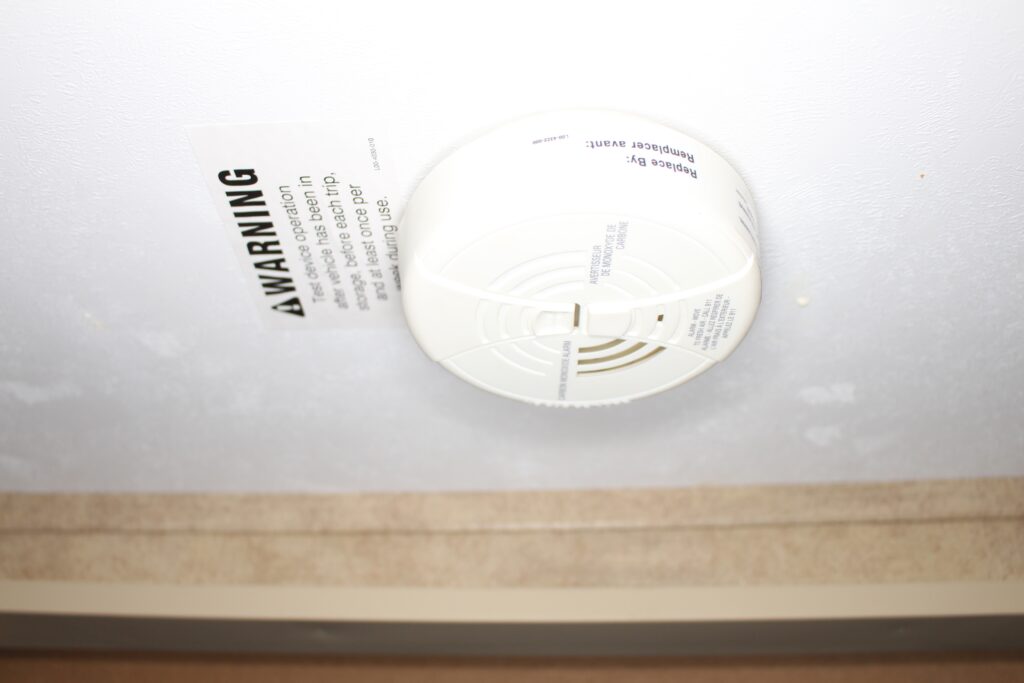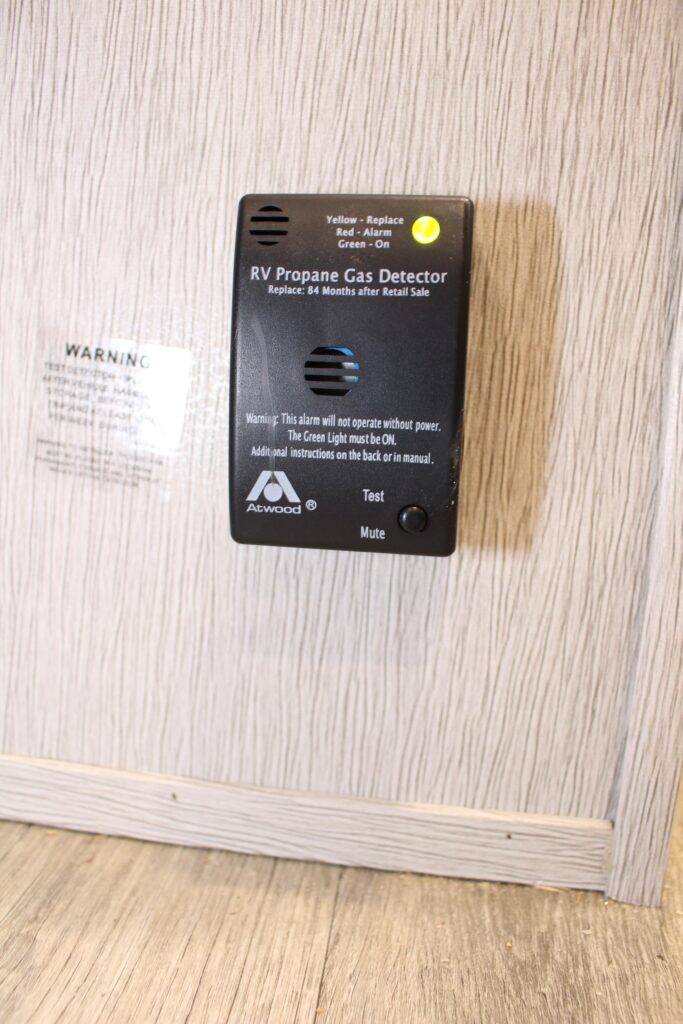Here’s what to do
Recreation Vehicles are equipped with up to three types of safety detectors, depending on the size and design of the RV, as mandated in the NFPA 1192 standards. For your safety, these detectors must be in place and operational so they can notify you if there is a problem.
Unfortunately, false alarms happen, and some folks get annoyed and disable their detectors, which leaves them vulnerable. It is also common for RVers to forget to change the batteries and actually test their detectors.

Smoke detectors in RVs need to be tested weekly while the unit is in use. Batteries need to be replaced as directed by the detector manufacturer, which is usually every year. If you use your unit all year, change the battery in the fall when you change your clock or if the detector’s low battery signal is sounding. That’s usually a beep every minute. If you store your RV in the off-season, change the battery as part of your spring maintenance.
Propane and carbon monoxide detectors are also common, and can be combined in one device that is hardwired into the RV’s 12-volt electrical system. While propane alarms will not be included in RVs that do not have a propane system, every RV must have a CO alarm.

While most alarms will notify the owner of a problem, they should be tested before each trip or at least monthly. Some detectors will have an expiration date, or must be replaced after a certain amount of time has passed since it was installed. Check your detector documentation for more information.
If your detector activates, verify the cause quickly. Don’t ever disable detectors. If false alarms are too frequent, replacing the detector may help. Always replace with an RV-rated detector. Do not use detectors found at your local home center in an RV. They aren’t designed for the dynamic conditions RVs face, so false alarms and malfunctions could be more frequent.
Click here to get a replacement RV smoke detector, here to get a replacement RV LP and LP/CO detector, and here to get a replacement RV CO detector.
Make sure whatever alarm you get is approved for RV use!

For more information on RV CO detectors and the standards, CLICK HERE
